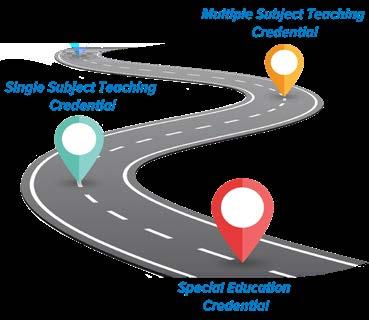








“Project Impact is dedicated to increasing diversity in the teaching profession by actively recruiting, training, and mentoring African American and Hispanic males in the Inland Empire region of Southern California and beyond. Our mission is to prepare highly skilled, collaborative, and inclusive educators who champion educational equity and social justice. Rooted in Restorative Justice Theory, we address systemic issues within education to promote fairness, equity, and inclusion, ultimately empowering teachers to bridge educational disparities.”






Dean Chinaka DomNwachukwu (pronounced Chi-na-ka Dom-wah-choo-coo) is the initiator of Project Impact and Dean of Watson College of Education. Bringing nearly 20 years of leadership experience in higher education, he previously served as the associate dean for diversity and values at Azusa Pacific University School of Education, where he promoted equity, inclusivity, and Christian values. Dean DomNwachukwu has also held the role of associate dean for accreditation and academic affairs, leading numerous programs through successful accreditation processes. An ordained minister and former public school teacher, he holds a doctorate in intercultural studies from Fuller Theological Seminary and a master’s degree in educational leadership from National University. Dean DomNwachukwu is an accomplished author on multicultural education, with several published works, including his latest book, “Multicultural Education in an Age of Globalization: Compelling Issues.” He looks forward to fostering a collaborative and inclusive climate at CSUSB.


Dr. James Huff, currently serving as the Project Impact Director, brings an extensive 36-year background in education to his role. His career includes a 15-year tenure at UC Riverside and 21 impactful years within the Jurupa School District. Dr. Huff is also a proud veteran, having dedicated four years to the United States Marine Corps, where the values of discipline and commitment undoubtedly shaped his approach to educational leadership. As an Assistant Principal at Patriot High School, Dr. Huff demonstrated his dedication to fostering an inclusive learning environment. He has a rich history of teaching special education to middle and high school students, reflecting his commitment to catering to diverse student needs. His expertise is further solidified by his dual credentials in special education and regular education, which enable him to bridge gaps and ensure educational excellence for all students under his influence.


Dr. Becky Sumbera, a seasoned educational professional with 34 years of comprehensive experience, has dedicated her career to shaping the future of education. Dr. Sumbera has spent most of her life in the Inland Empire, profoundly impacting the educational landscape. Her extensive background includes 25 years in K-12 education, where she has served in various capacities, including teacher, administrator, coordinator, and director across school sites, district, county, and state levels, teaching elementary, middle, and high school students. Transitioning to higher education eight years ago, Dr. Sumbera has contributed her vast expertise to CSUSB for six years, with previous engagements at Pepperdine and Walden University. Currently in her 4th year as a tenured faculty member in the Teacher Education & Foundations department, Dr. Sumbera continues to influence future educators with her wealth of knowledge and experience.



Teaching has become a female-dominated field, with 77% of public school teachers being female and only 23% male in the 2020-21 academic year, according to the National Center for Education Statistics. The disparity is even more pronounced at the elementary level, where only 11% of teachers are male, and at the secondary level, where less than 36% are male. This trend is not unique to the United States; men are underrepresented in elementary education globally, with concerns about the declining presence of male teachers.





This imbalance impacts male students academically and socially, as they lack male role models in the classroom, which can lead to perceptions of education as a feminine endeavor. Additionally, male teachers play a crucial role in modeling nonviolent, equitable interactions, and promoting a positive conception of masculinity. The stereotype of male teachers as disciplinarians is unfounded and detrimental, as it creates unrealistic expectations and can harm their careers.


Project Impact empowers diversity in education by actively recruiting, training, and mentoring minority male students, particularly African American and Hispanic males, to become educators. By providing financial assistance, comprehensive support, and mentorship, the program helps overcome barriers that often prevent minority males from entering the teaching profession. This focused approach not only increases the representation of minority males in the classroom but also ensures that students benefit from diverse role models and inclusive teaching practices. By addressing systemic issues within the education system, Project Impact fosters a more equitable and inclusive learning environment, ultimately enhancing educational experiences and outcomes for all students..
Across the nation, there is a persistent under-representation of minority teachers, with only a 12% increase in the minority teacher workforce over 30 years. Currently, teachers of color make up only 20% of the education workforce, and minority males constitute a mere 5% of teachers in America’s public schools.
Project Impact addresses inequities in education by empowering minority males to become educators, thereby tackling the systemic barriers that hinder their entry into the teaching profession. By providing financial support, mentorship, and professional development, the program ensures that participants have the resources and opportunities they need to succeed. This approach helps to level the playing field and create a more equitable education system where all students, regardless of their background, can access quality education and support.

DID YOU KNOW:
Male teachers can enhance understanding of boys’ learning styles, help regulate boys’ behaviors, and engage students in unique and motivating ways?

Project Impact aims to close achievement gaps by preparing minority male educators who are equipped to address the unique challenges faced by underserved student populations. These teachers bring valuable insights and cultural competencies to the classroom, helping to create more inclusive and effective learning environments. Through targeted support and innovative teaching strategies, Project Impact educators are positioned to make a significant impact on reducing disparities in academic performance and ensuring that all students have the opportunity to succeed.

YOU KNOW:
Did you know that informal systems like teachers planning during lunch or grabbing coffee on weekends can unintentionally exclude minority educators, highlighting the importance of administrators creating scheduled time for meaningful collaboration?

Representation is a cornerstone of Project Impact, which seeks to increase the presence of minority male teachers in K-12 classrooms. When students see teachers who look like them and share similar cultural experiences, it fosters a sense of belonging and can significantly enhance their academic and social development. By diversifying the teacher workforce, Project Impact not only benefits minority students but also enriches the educational experience for all students, promoting understanding and respect for diverse perspectives.
Rooted in Restorative Justice Theory, Project Impact emphasizes building strong, supportive relationships within the education community. This approach involves proactive strategies to foster a positive school climate, where conflict is addressed through dialogue and mutual understanding rather than punitive measures. By training educators in restorative practices, Project Impact helps create classrooms where students feel valued and respected, ultimately promoting fairness, equity, and inclusion across the education system.


Project Impact offers a range of program benefits designed to empower minority males to become educators, addressing systemic issues within the education system through a framework rooted in Restorative Justice Theory. These benefits promote fairness, equity, and inclusion, and aim to bridge educational disparities by providing comprehensive support to participants. Key program benefits include addressing inequities in education, highlighting the importance of representation, closing achievement gaps, and employing a restorative justice approach.
Participants in Project Impact receive financial assistance to support their journey towards becoming educators. This assistance covers various expenses such as tuition fees, textbooks, and other educational materials. By alleviating financial burdens, we ensure that talented individuals from underrepresented backgrounds have the opportunity to pursue a career in teaching without facing significant financial obstacles. This support helps to diversify the teacher workforce by attracting individuals who may not have otherwise been able to afford the necessary education and training.
Project Impact provides participants with comprehensive support and mentorship throughout their educational journey and beyond. This mentorship helps to foster a sense of belonging and community, providing participants with the support they need to succeed academically and professionally. Additionally, participants have access to a network of fellow educators and professionals who can offer valuable insights and support as they progress in their careers.


Project Impact prioritizes ongoing professional development to ensure that participants continue to grow and excel as educators throughout their careers. Through workshops, seminars, and other learning opportunities, participants have the chance to enhance their skills, expand their knowledge, and stay up-to-date on the latest trends and best practices in education. This commitment to professional development empowers participants to be lifelong learners and leaders in their field, contributing to positive outcomes for their students and communities.
As part of Project Impact, participants engage in a pre-intern educational experience that prepares them for the realities of the classroom. This experience provides hands-on training and exposure to diverse teaching environments, allowing participants to develop essential skills and strategies for effective teaching. Through this experience, participants gain valuable insights into the challenges and opportunities of the teaching profession, helping them to feel confident and prepared as they enter the classroom as educators.


Project Impact changed my career by making it realistic for me to actually pursue a new career in education. The pathway to education may seem difficult and hard to do, but Project Impact was able to help navigate all troubles I faced along the way.

My experience with Project Impact has been the multifaceted support system. They not only have program coordinators, program director, and the Dean supporting you. They offer financial support and inspirational people that want to see you succeed.



Josh Fuerte
Cohort 2, ‘23



Joining Project Impact provides participants with the opportunity to gain essential qualifications, including a Multiple Subject Teaching Credential, a Single Subject Teaching Credential, and a Special Education Credential, paving the way for a successful career in K-12 education. A Multiple Subject Teaching Credential, a Single Subject Teaching Credential, and a Special Education Credential are essential qualifications for aspiring teachers in K-12 education. The Multiple Subject Teaching Credential is designed for educators who wish to teach multiple subjects, typically at the elementary school level, providing a broad foundation for teaching young students across various disciplines. The Single Subject Teaching Credential, on the other hand, is aimed at those who intend to specialize in one subject area, such as math or science, and is often pursued by teachers at the middle or high school levels. The Special Education Credential equips teachers with the skills and knowledge to support students with diverse learning needs, ensuring inclusive education for all.
For minority male college students, these credentials offer structured pathways to enter the teaching profession, addressing the significant underrepresentation of minority males in education. By obtaining these credentials, they can become role models and advocates for students from similar backgrounds, fostering a more diverse and inclusive educational environment that benefits all students.








